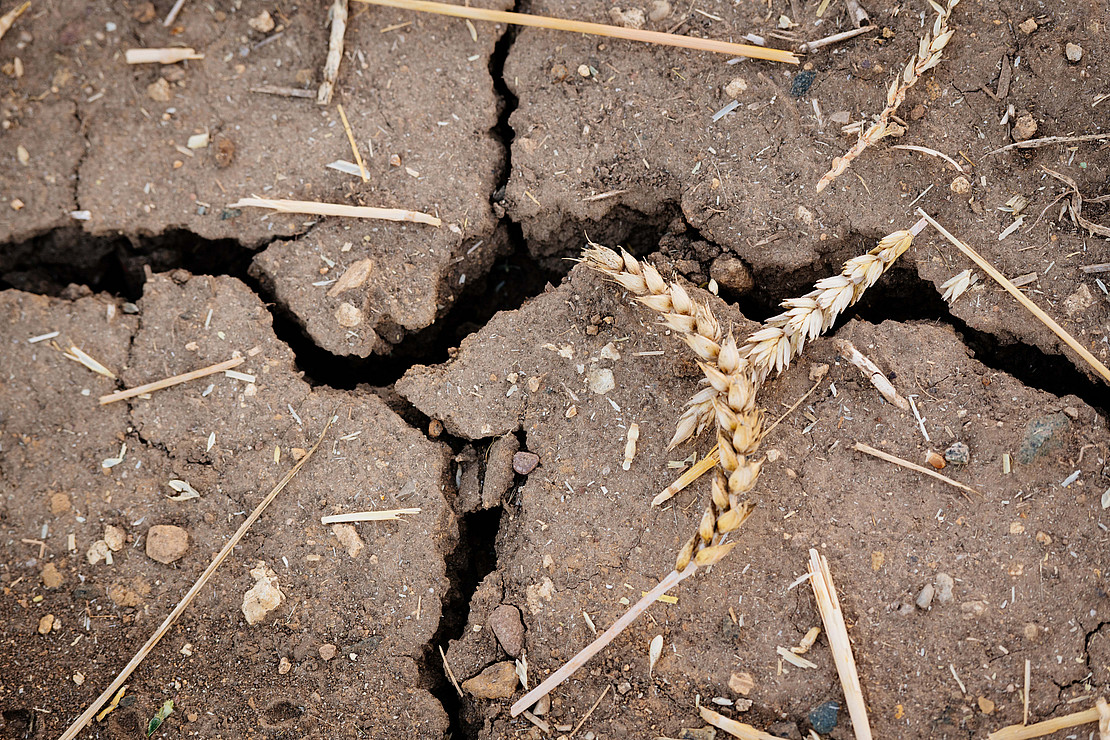Meldung
Can caraway and coriander help agriculture in a changing climate?
 Image: Adobe/Steve.
Image: Adobe/Steve.Germany is currently experiencing the next hot summer. Just how drastic heat and drought can be for agriculture was demonstrated not least by the extreme year 2018, when cereal harvests fell by almost a third in some regions. Scientists under the leadership of the University of Kassel are now researching the possibility of integrating deep-rooted crops into crop rotations, specifically: planting caraway, fennel and coriander on the same fields as wheat. The state of Hesse announced today (June 30) that it is funding the project with 4.8 million euros as part of its state offensive for the development of scientific and economic excellence (LOEWE).
According to the hypothesis, caraway, fennel and coriander can reach water and nutrients in deep soil layers with their taproots. In mixed cultivation with the shallower-rooted wheat, the soil volume should be used more extensively - with a given amount of water and nutrients, a higher yield would be possible. But there is more: the research team led by Prof. Dr. Miriam Athmann, head of the Department of Organic Agriculture and Crop Production at the University of Kassel, is now investigating the extent to which caraway, coriander and fennel are affected by a "hydraulic lift" known from some tree species: they release water absorbed from deep soil layers back into the upper soil layers, thus improving the availability of water and nutrients for neighboring shallower-rooted plants. Perennial wheat, which has only been available for a few years, is being tested as a mixed crop partner for perennial fennel. Perennial crops have so far hardly featured in arable crop rotations, but are more resilient to drought stress due to their pronounced root systems. With their flowers, they could also make a significant contribution to biodiversity - an area in which agriculture has a significant influence and therefore a particular responsibility.
"The cultivation of deep-rooted crops is not widespread in Central European agriculture," explains Miriam Athmann. "Whether they are better able to cope with climate change, especially in mixed cultures, and what contribution they make to preserving biodiversity has not yet been researched. We want to change that."
Vice President Prof. Dr. Michael Wachendorf, responsible for research and himself involved in the project as an agricultural scientist, was delighted to be awarded the contract for "this highly relevant project. For agriculture, how it deals with climate change is a question of survival. Our results can make a contribution to this. The project fits perfectly into our research profile, in which we focus on sustainable transformations."
In future, field trials will be carried out at four locations in Hesse, including the Frankenhausen Estate, the experimental farm of the University of Kassel.
The LOEWE focus TRIO (Transformative Mixed Crop Systems for One Health) will run for four years. In addition to the departments of Athmann and Wachendorf, the Kassel departments of Ecological Plant Protection (Prof. Dr. Maria Finckh), Agroecosystem Analysis and Modeling (Prof. Dr. Christoph Gornott) and Botany (Prof. Dr. Birgit Gemeinholzer) are also involved. Project partners are the Justus Liebig University Giessen and Hochschule Geisenheim University, associated partners are the Potsdam Institute for Climate Impact Research, the Leibniz Center for Agricultural Landscape Research, the State Agency for Agriculture of Hesse and the associations Forschungsring and Ökoplant.
To the press release of the HMWK.
Contact:
Prof. Dr. Miriam Athmann
University of Kassel
Head of the Department of Organic Agriculture and Crop Production
Tel: +49 5542 98-1587
Email: m.athmann@uni-kassel.de